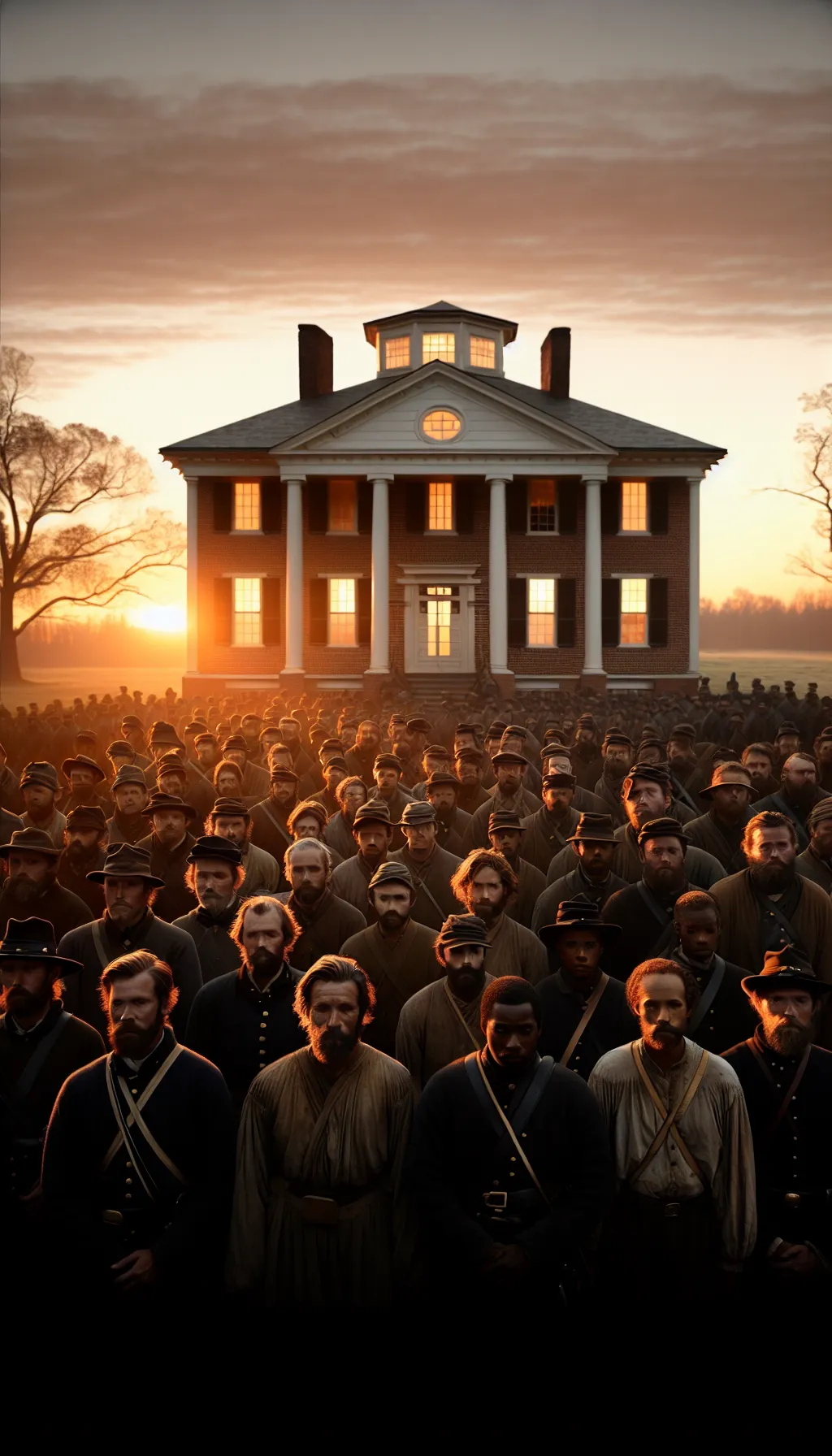United States – The Final Bow at Appomattox – April 9, 1865
TLDR;
- Event: On April 9, 1865, General Robert E. Lee surrendered to General Ulysses S. Grant at Appomattox Court House, effectively ending the American Civil War.
- Terms: Grant offered generous surrender terms, allowing Confederate soldiers to keep their horses and personal belongings, aiming for a swift and humane end to the conflict.
- Significance: The surrender marked the beginning of the end for the Confederacy and started the nation’s long journey toward reconciliation and healing.
- Legacy: The meeting between Lee and Grant is remembered for its mutual respect and the dignified conclusion to a devastating war.
–
Story
The air was thick with tension as the sun rose over Appomattox Court House, Virginia. Soldiers, weary and battle-worn, stood in silence, their eyes fixed on the McLean House where history was about to be made. Inside, two titans of the American Civil War faced each other across a simple wooden table.

General Robert E. Lee, the embodiment of Southern resolve, sat with dignity, his once-proud army now a shadow of its former self. Opposite him, General Ulysses S. Grant, the relentless Union commander, offered terms of surrender. The room was heavy with the weight of four years of bloodshed and sacrifice.
The Civil War had ravaged the nation, pitting brother against brother in a brutal conflict primarily over the future of slavery, as explicitly stated in Confederate states’ secession declarations. By April 1865, the Confederacy was crumbling. Lee’s army, cut off and surrounded after the Battle of Appomattox Court House, had no viable option but surrender.
In a moment that would echo through history, Lee accepted Grant’s terms. The surrender was marked by a profound respect between the two generals. Grant, understanding the gravity of the moment, offered generous terms to prevent further suffering, a decision that was both humane and pragmatic, aimed at ending the war swiftly. Confederate soldiers were allowed to return home with their horses and personal belongings, a gesture of reconciliation.
As Lee rode away, many of his men, paroled and beginning their journeys home, watched with heavy hearts, knowing they had given everything for a cause that was now lost. The war was over, but the path to healing a divided nation had just begun.
–
| Would a different approach by Lee have changed the outcome of the Civil War? |